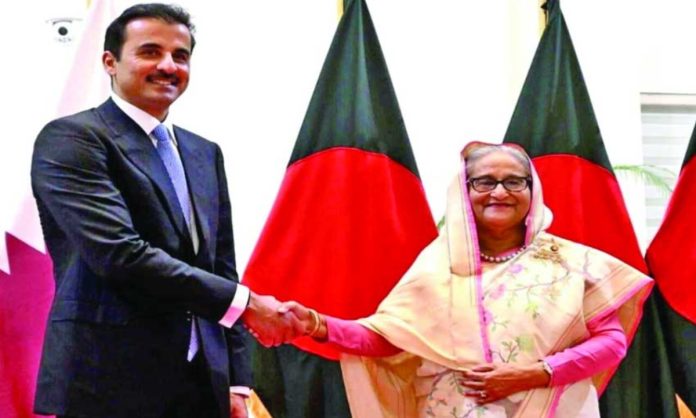Qatar, despite its small size and population, has strategically utilized its soft power to carve out a significant role for itself on the regional and global stage. Situated amidst powerful neighbors like Saudi Arabia and Iran, Qatar has managed to assert its influence regionally and globally through a multifaceted approach that includes cultural diplomacy, mediation in conflicts, humanitarian aid, and strategic alliances. Understanding Qatar’s soft power strategy provides valuable insights for countries like Bangladesh, which face similar geopolitical challenges in their respective regions.
At the heart of Qatar’s soft power policy lies its ambition to become a regional hub for Arab culture and influence. Through investments in media outlets like Al Jazeera and initiatives to promote Arab arts and literature, Qatar has projected its cultural identity beyond its borders. By doing so, Qatar not only enhances its own image but also positions itself as a mediator and facilitator in regional conflicts. This approach has enabled Qatar to maintain diplomatic ties with various factions and play a constructive role in resolving disputes, thereby increasing its influence and relevance in the Middle East and beyond.
Furthermore, Qatar’s philanthropic engagement in humanitarian efforts has bolstered its soft power credentials. By actively supporting organizations working to alleviate poverty and improve living conditions in underdeveloped countries in Asia and Africa, Qatar has demonstrated its commitment to global stability and development. This aspect of Qatar’s soft power not only earns it goodwill internationally but also helps to mitigate the security concerns arising from its precarious geopolitical position.
The defense agreements signed by Qatar with the USA and France serve as another key component of its soft power strategy. By aligning itself with major military powers, Qatar seeks to deter potential aggressors and safeguard its sovereignty. These alliances not only provide Qatar with security assurances but also afford it diplomatic leverage in regional politics. Through a combination of defensive capabilities and diplomatic maneuvering, Qatar aims to maintain a balance of power in the region and prevent any single neighbor from exerting undue influence.
Drawing parallels with Qatar’s approach, Bangladesh, situated in South Asia, faces similar challenges of navigating its relations with neighboring powers such as India, China, and Pakistan. Like Qatar, Bangladesh can benefit from adopting a balanced foreign policy that prioritizes strategic partnerships while leveraging its soft power assets.
To mitigate the influence of regional powers, Bangladesh could consider forging defense pacts with major global players, similar to Qatar’s arrangements with the superpower. By diversifying its defense partnerships, Bangladesh can enhance its security posture and reduce its dependence on any single ally.
Moreover, Bangladesh possesses a wealth of soft power resources that it can leverage to enhance its global standing. From its rich cultural heritage and hospitality to its burgeoning tourism industry and skilled labor force, Bangladesh has much to offer the world. By promoting these assets effectively, Bangladesh can project a positive image internationally and strengthen its influence in the global arena.
While Bangladesh may not possess the mineral wealth of Qatar, its abundant human resources and untapped mineral reserves present opportunities for economic growth and development. By harnessing these resources responsibly and investing in sectors such as education, healthcare, and infrastructure, Bangladesh can enhance its soft power and attract foreign investment and cooperation.
Qatar’s soft power policy offers valuable lessons for countries like Bangladesh grappling with geopolitical challenges. By adopting a balanced foreign policy approach, leveraging soft power assets, and forging strategic partnerships, Bangladesh can enhance its influence and security in a rapidly evolving regional landscape.




